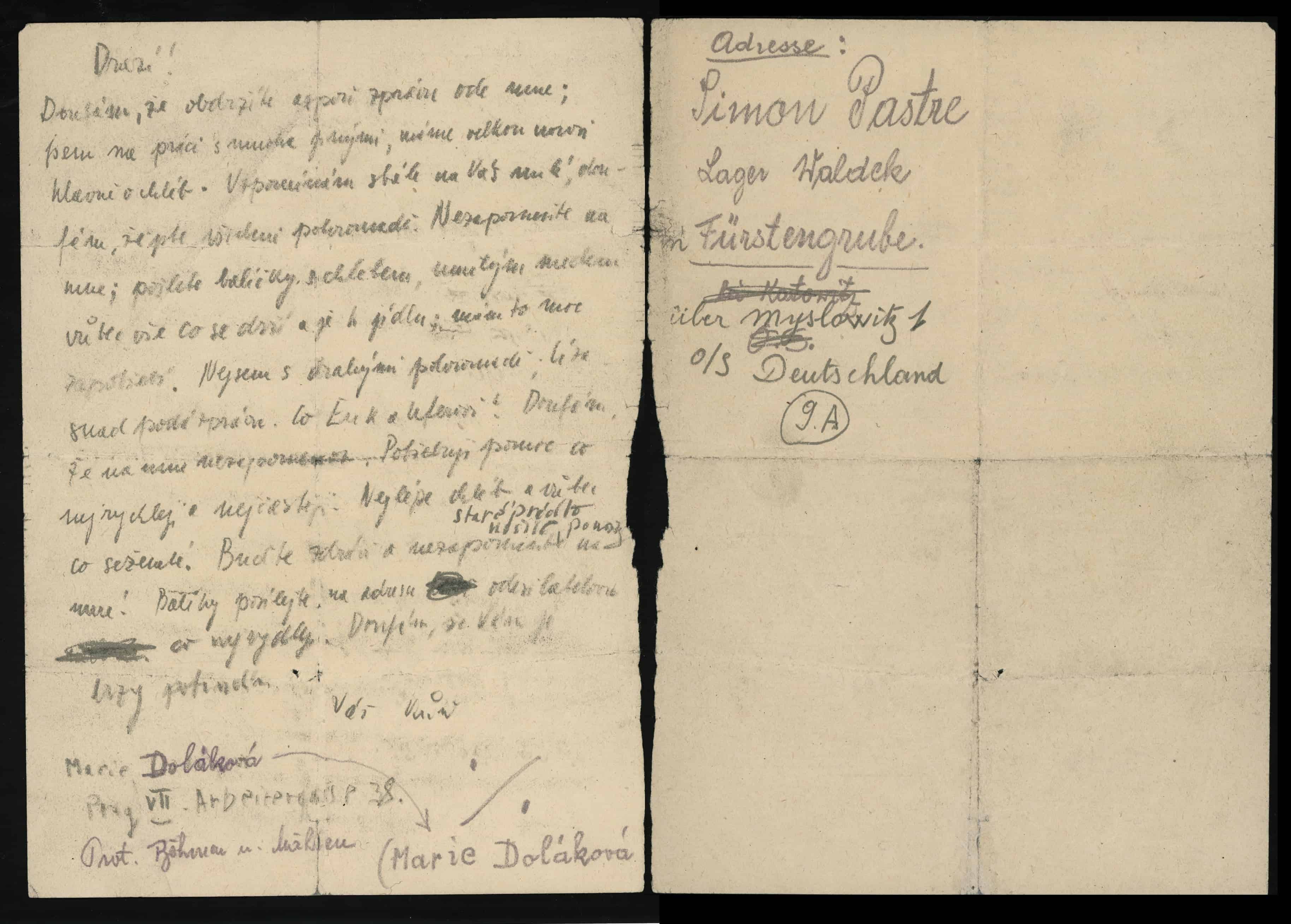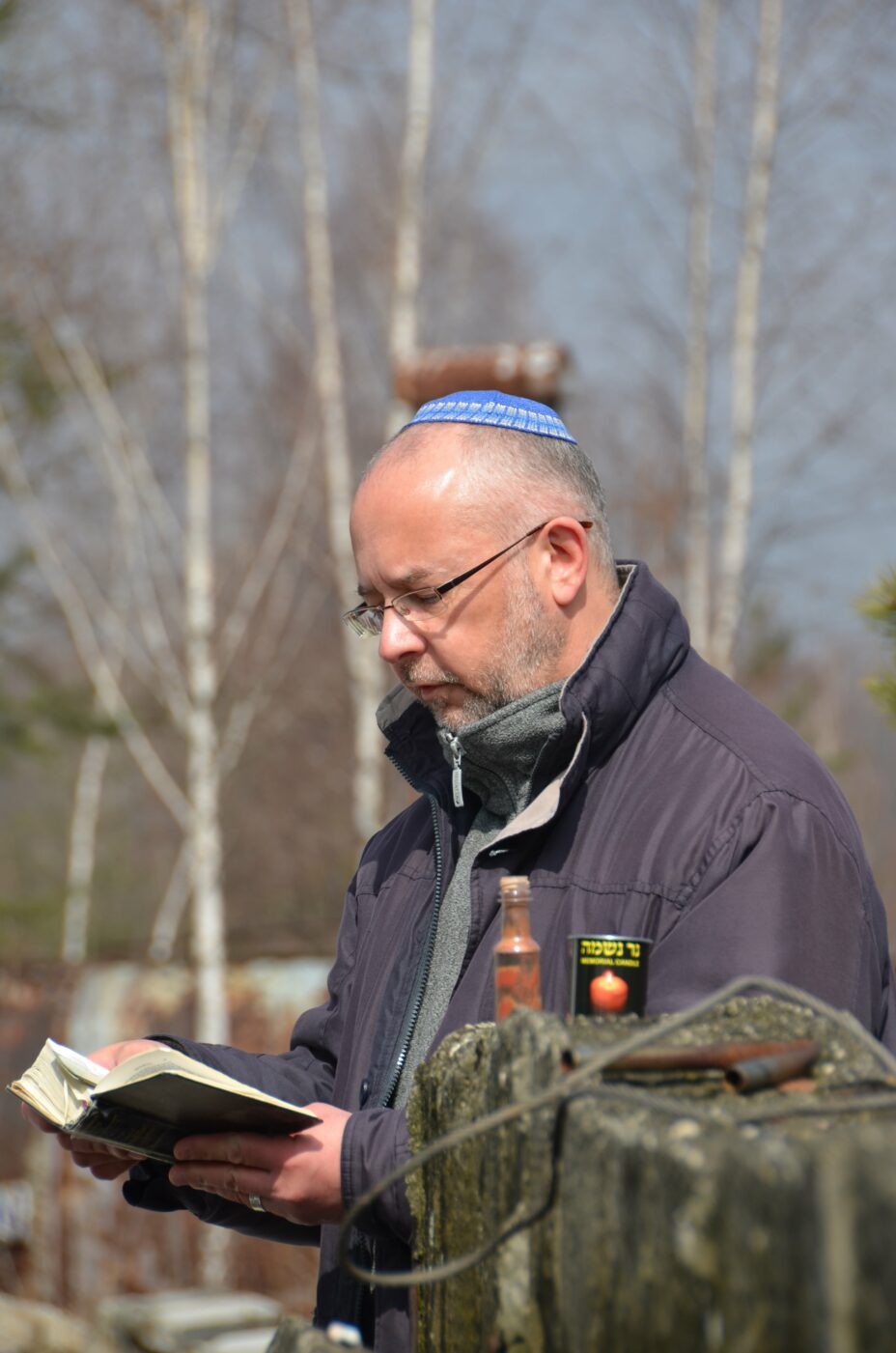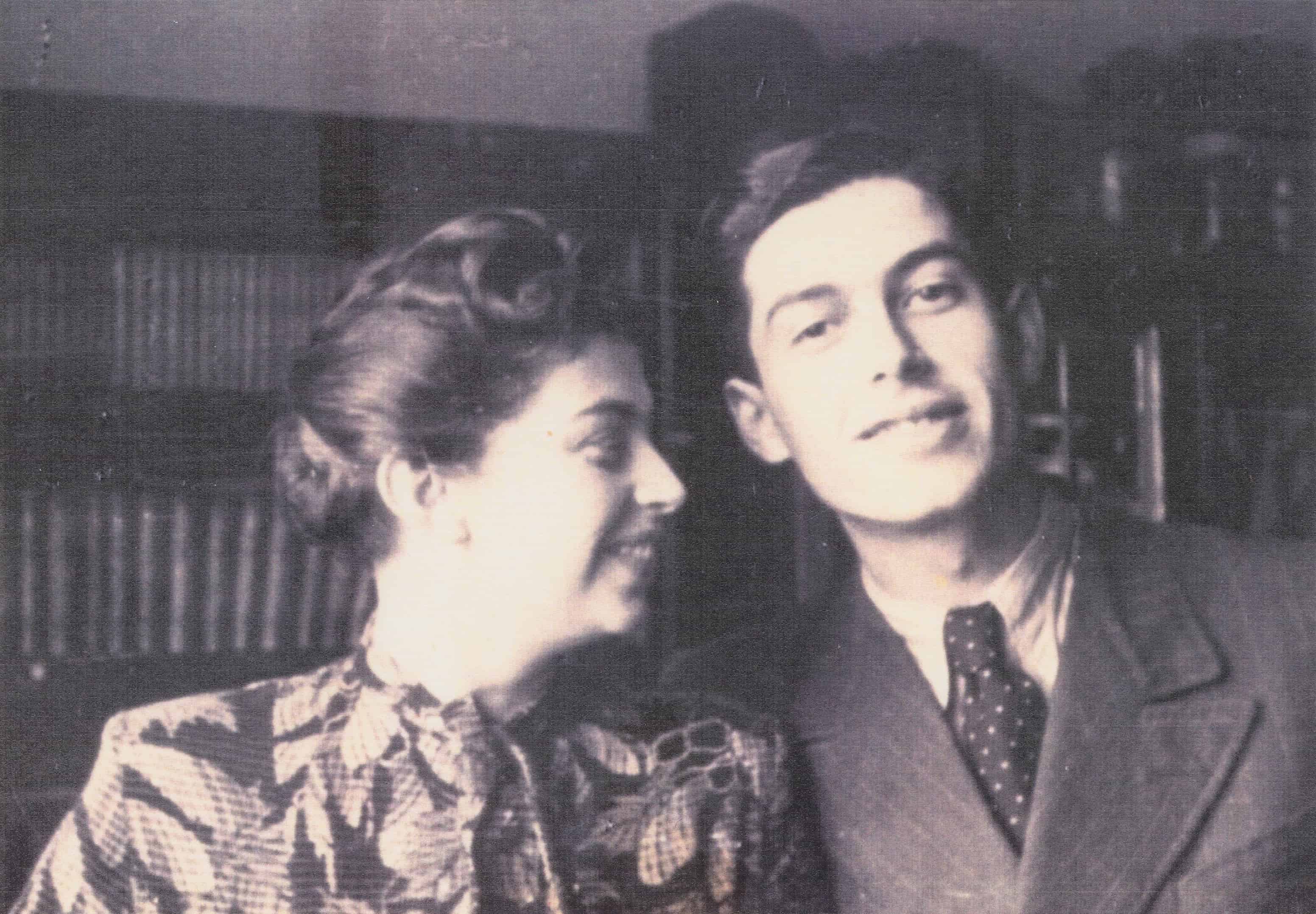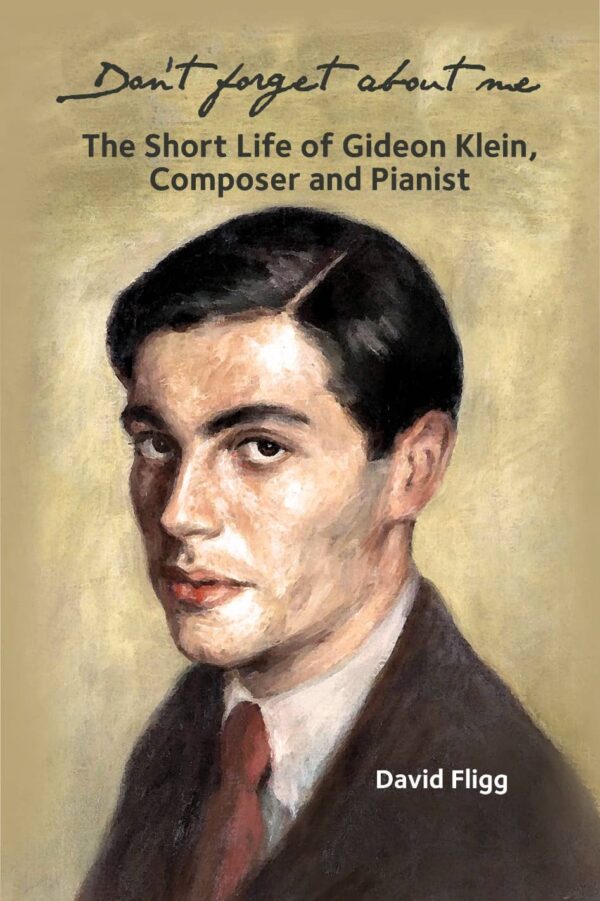The narrative seems to have all the ingredients of a tragic, if not epic, film. The young genius, his potential cruelly crushed by an evil regime, a stack of hidden papers and manuscripts mysteriously turning up in post-Communist eastern Europe, a family working for the anti-Nazi resistance, arrests, executions, clandestine music-making under the noses of the Nazis, a heart-rending letter smuggled out of a concentration camp, and much more besides.
I was overwhelmed and excited in equal measure when, in the archives of Prague’s Jewish Museum, stacks of archival material which had never been evaluated, never mind translated, were set before me. They led me on a journey, an odyssey, from the achingly beautiful city of Prague to a remote forest of unmarked and forgotten mass graves in Polish Silesia, via hours spent interviewing Holocaust survivors, and finally the publication of this book, Don’t forget about me: The Short Life of Gideon Klein, Composer and Pianist1. Here we have a remarkable musician, Gideon Klein: outrageously talented, affectionate, single-minded, and very, very brave.

’Don’t forget about me’ is, in fact, a quotation from Klein’s final letter, miraculously smuggled out of the Fürstengrube slave-labour coal mine, where he was murdered by the retreating SS at the age of 25. Even more extraordinary is that the letter found its way to Prague, and eventually to Klein’s only remaining relative, his sister Lisa. It’s the last we hear from, and of, him. In the letter, he exhorts the reader, three times no less, not to forget about him, and when I was first presented with the document, it was as if Gideon’s voice was transcending the years, urging us to celebrate his amazing talent and to tell his story and that of his quirky and indefatigable family.
December 2019 marked the centenary of Klein’s birth, and the Czech version of this book, under the title Dopis od Gideona (‘Letter from Gideon’)2, was launched at the Jewish Museum in Prague on his birthday, 6 December. Franz Kafka’s great-nephew, Josef Třeštík, the Programme Director for the Prague Spring Festival, opened the launch; his family knew the Kleins, and so it was an appropriate choice. That year, I co-curated a festival in the Czech Republic, Gido’s Coming Home!, where we took Gideon on tour, so to speak, to various Czech towns and cities, and dedicated a memorial to him at the Jewish cemetery in his home town of Přerov. Czech TV and radio, the local media and the town municipal dignitaries were out in force. Later that day, we held a concert in the fabulous museum there. Gido had finally come home.

For the English version of the book, Zdenka Fantlová (1922–2022), who knew Klein from when they were both imprisoned in Terezín, wrote the Foreword. Zdenka, who was based in London, and I became close friends, and she supported me in bringing the finer details of Klein’s life and personality to light. She passed away in November of last year, aged 100, a mere four days before the book’s publication. Zdenka said that Gideon was ‘a lovely person, and wonderful musician who undoubtedly would have become renowned, if a cruel regime had not ended his life so pitifully early’.
I wrote this blog posting around the time when plans were being put in place to commemorate International Holocaust Memorial Day on 27 January, a date chosen because of the anniversary of the liberation of Auschwitz-Birkenau. It was also the date, in 1945, that Gideon Klein met his death. The liberating Red Army was almost at the gates of Fürstengrube, but the SS, in order to eradicate all traces of their atrocities, went on a deadly rampage before the Allies could enter the camp.
Yet it’s essential to ensure that Gideon Klein is not referenced only as being the victim of a gangster regime which wanted to erase his name but on his own merit as a significant player in twentieth-century Czech Modernism. By performing his music, and, I hopeful, through the publication of my book, his plea not to be forgotten can be fulfilled.
- David Fligg, Don’t forget about me: The Short Life of Gideon Klein, Composer and Pianist, Toccata Press, distributed by Boydell & Brewer, November 2022, 322 pages, includes 57 black-and-white and 48 colour photographs.
- David Fligg, Dopis od Gideona (‘Letter from Gideon’), P3K Publishng, Prague, Czech Republic, 2019.

